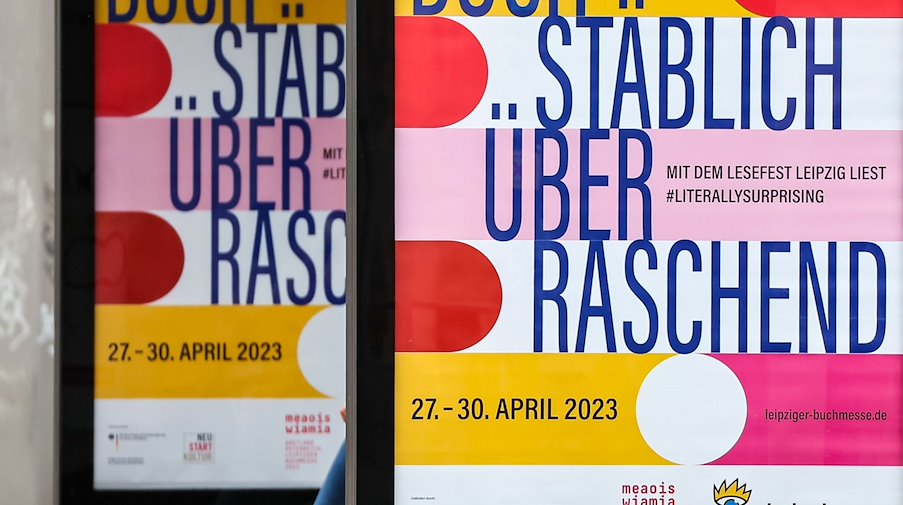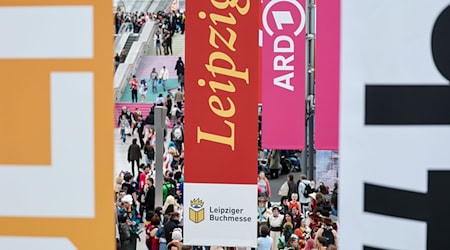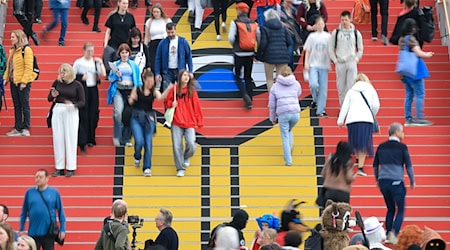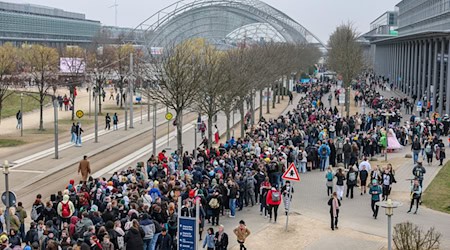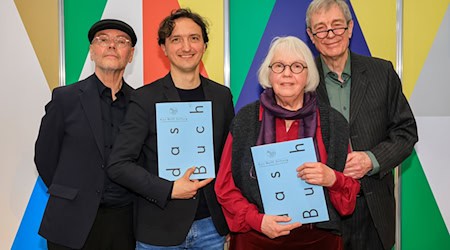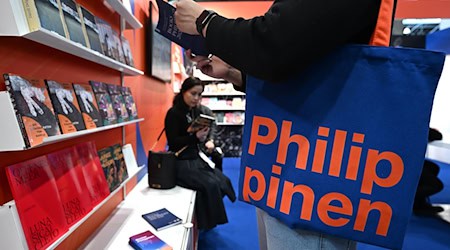After a three-year forced break from Corona, the Leipzig Book Fair is back. The spring meeting of the book industry will open Wednesday (7 p.m.) with a ceremony at the Gewandhaus. At the same time, the Leipzig Book Prize for European Understanding, endowed with 20,000 euros, will be awarded to the Russian poet Maria Stepanova.
State Minister for Culture Claudia Roth emphasized the importance of the book fair. "It is one of the largest and most important in all of Europe. It is the book fair that builds a bridge to Central and Eastern Europe. That is also of very central importance in times of these tensions, in times of war in Ukraine," the Green politician told the Deutsche Presse-Agentur. She added that it was particularly important that the Russian-Jewish writer Maria Stepanova receive the book prize. Stepanova currently lives in German exile.
For the public open fair and the associated festival "Leipzig reads" from Thursday to Sunday their doors. About 2000 exhibitors from 40 countries present their novelties around the book, according to the fair. In the pre-crisis year 2019, there were around 2500 exhibitors. At "Leipzig reads" around 2400 events on 300 stages are on the program. As a book fair guest country Austria presents itself.
Roth stressed the broad effect. The Leipzig Book Fair is not a closed circle of experts. Leipzig is "a decentralized reading festival," she said. "Such a fair is a celebration of democracy, because literature is a voice of democracy."
In times of great uncertainty caused by war, crises and conflicts, she said, culture has a very special role. "Right now, such fairs are also places to protect culture, to preserve it, to expand it and to make its social significance strong, also for publishers from countries where there is no democracy, no freedom, no freedom of expression, no freedom of art."
In 2020, Leipzig was one of the first major fairs to be canceled because of the Corona pandemic. It also could not take place in 2021 and 2022. Now the federal government is funding the book fair with three million euros. "The grant should guarantee that the book fair can take place again," Roth said.
This also has to do with other goals. Leipzig is the place for small publishers, he said. "The stand fees are very high at the fairs. That's why this sum we've made available can also help reduce stand fees." He said this will especially benefit small, innovative publishers. He said the money will also help the book fair expand digital offerings.
In addition, he said, it is important to focus on young audiences with new event formats. "If the young get excited about it, then it's also a service to the future, because then they'll stick with it." One example is Manga-Comic-Con, "one of the biggest meeting places for the manga and comics scene in Germany," Roth said. "It's just also a form of literature, of the written, the painted, the drawn." She said she was pleased to now have representatives of this cultural form among the scholarships from the Literature Fund.
Roth did not want to hold out the prospect of long-term financial aid. "Given an extremely tight budget situation, I can't say now whether this will be a permanent support." This was stimulus, he said. "If the book fair is successful, it won't need this support either."
What's important, he said, is that the fair keeps opening up to new formats. "There will be forums about open society, democracy, discrimination, attacks on our democracy and enemies of democracy, which, after all, do not only exist in Iran or other countries in this world, but also in our country," Roth said. "In this respect, it is also important to talk about democracy and about the open society also in Saxony."
Self Roth comes only little to read. Highlight of the past weeks was "Dog, Wolf, Jackal" by Behzad Karim Khani, for example, because of the fascinating language. In addition, she always enjoys reading biographies. "I've also set out to get to know more writers and writers who were very important in the GDR," Roth said. "Honestly, there are blind spots there for many, including me."
Copyright 2023, dpa (www.dpa.de). All rights reserved

